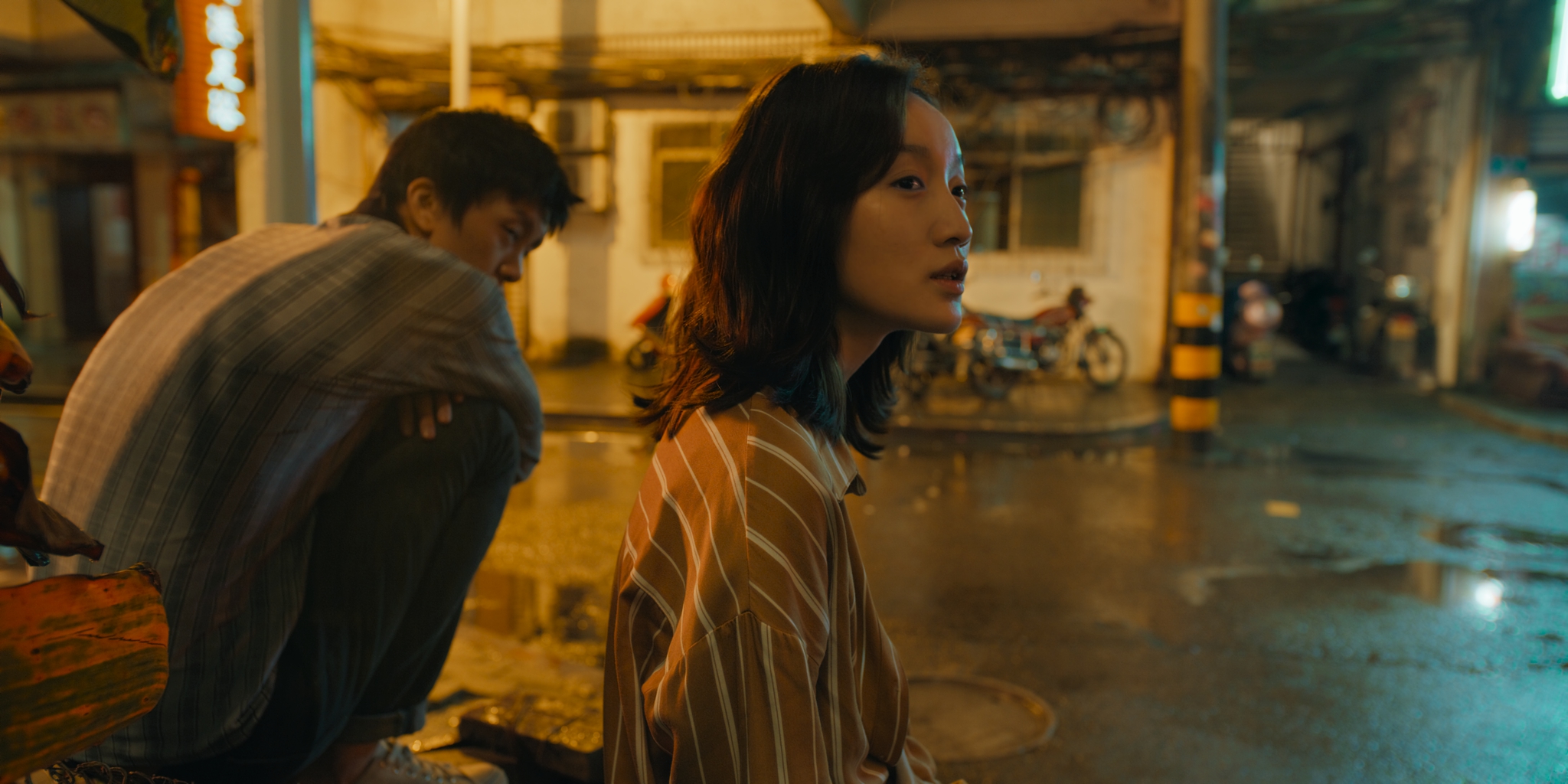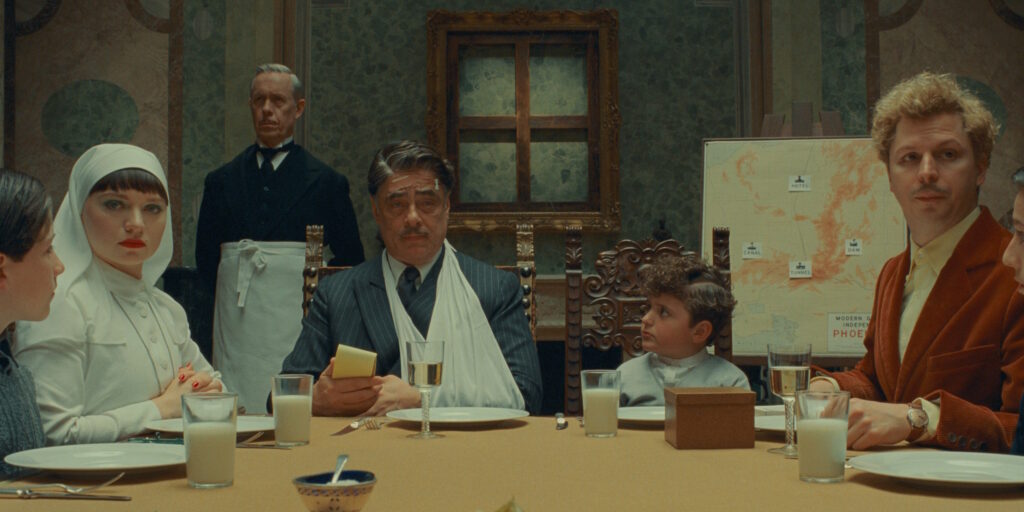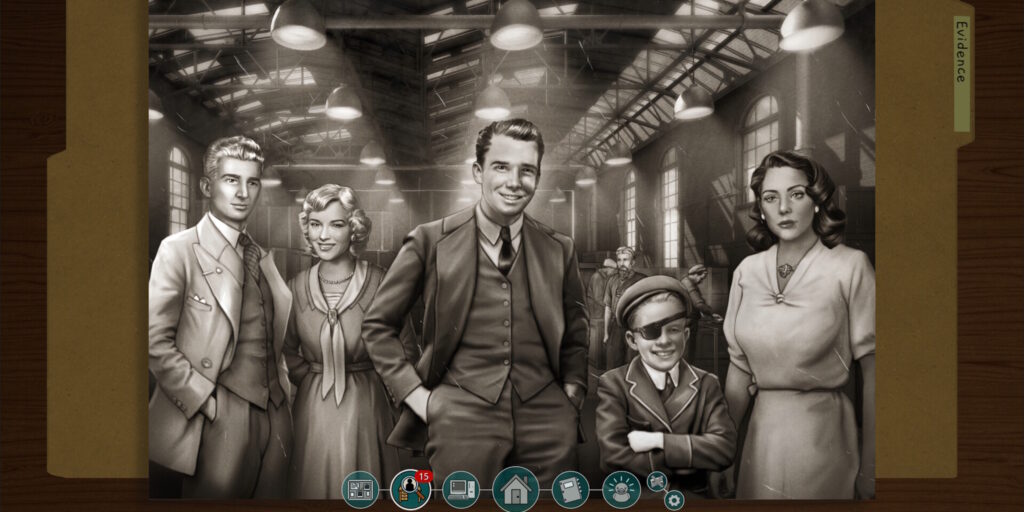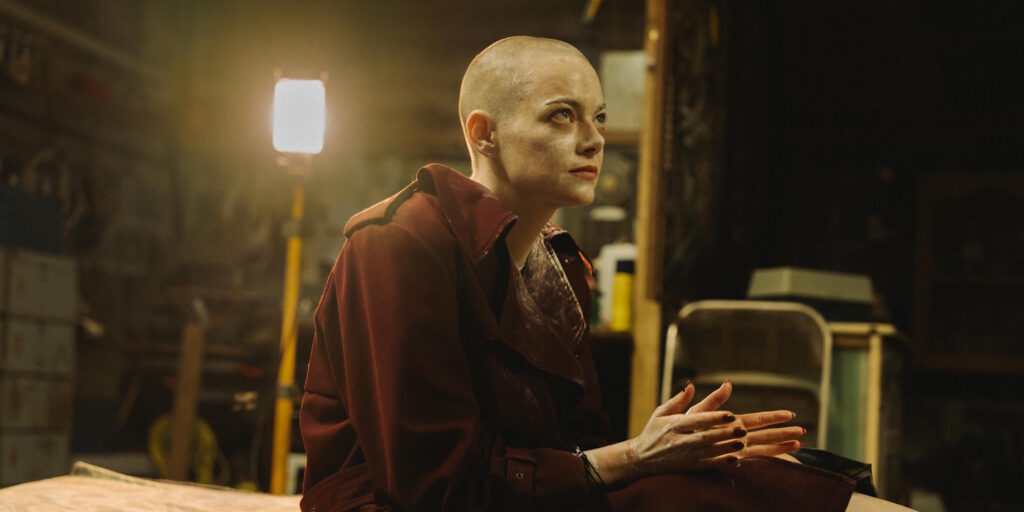Note: This review was written during the 2023 WGA and SAG-AFTRA strikes. Without the labor of the writers and actors currently on strike, the film being covered here wouldn’t exist.
Na Jiazuo’s debut feature Streetwise opens in Fengjie, Chongqing, in 2010, as a lanky young man named Dong Zi (Li Jiuxiao) solemnly scatters an urnful of ashes into the Yangtze River. Cinephiles will recognize this hazy, blue-green landscape as Jia Zhangke country, being the setting for that director’s twinned 2006 features, the narrative Still Life and the documentary Dong. While this may be Na’s nod to the older filmmaker, it is ultimately a fleeting one. As he contemplates the rumbling, overcast sky, Dong Zi thinks back to six years earlier, when he returned as a callow youth to his hometown of Zhenwu, further upstream in the neighboring province of Sichuan. Na introduces this town not with a panoramic view of its riverbanks and factories, but with a cockroach-level, shallow-focus closeup of its streets: wet concrete, cigarette butts, plastic wrappers, broken green glass, and a shattered mahjong tile stained with … blood? It’s a striking image, one whose potential symbolism gradually resolves as the 93 minutes of this beguiling, purgatorial noir uncoil.
In 2004, Zhenwu is at the tail end of a long, slow slide into irrelevance. The arms-manufacturing plant where most of the town’s population once worked has long since closed, and the only remaining businesses seem to be loan sharks, mahjong parlors, and tattoo shops. (Distributor Dekanalog’s English subtitles render the shuttered facility as “the gun factory,” which lends each reference the tone of a morbid joke.) After an indefinite time away, Dong Zi has returned to Zhenwu with little to his name other than his motor scooter and the shirt on his back. One of the film’s running jokes is that he is perpetually writing IOUs on scraps of paper, as if anyone in this town would accept anything other than cash on the barrelhead. He falls in with street-smart debt collector Xu Jun (Yu Ailei), a convivial small-timer who walks with a limp and prefers not to get his hands dirty. Dong Zi is ostensibly hired to be Xu Jun’s muscle, accompanying him on shakedowns, but this proves to be an absurd career choice. Skinny and hapless in a fight, Dong Zi spends most of Streetwise bruised and bandaged from various losing scraps with unhappy debtors.
Unfortunately, he desperately needs the money to chip away at the burdensome medical bills piling up as his widowed father (Yao Lu) slowly succumbs to some unspecified terminal illness. Despite Dong Zi’s regular payments to the hospital’s cashier, his relationship with his dad remains strained, due to the old man being an abusive, unrepentant scumbag. Disease notwithstanding, Dong Zi’s pajama-clad father still sneaks liquor and cigarettes, violently harangues his son, and makes a little action on the side by renting out his vacant apartment in 15-minute increments to adulterous couples. He still thinks of himself as the big man in Zhenwu, the connected foreman who once mentored the up-and-coming Mr. Four (Sha Baoliang) – who is now the closest thing to a crime boss in this dead-end town.
Xu Jun is a former minion of Mr. Four, as it turns out. Despite his sticky fingers, the debt collector has survived in the underworld of Zhenwu by adhering to an eccentric personal creed of reckless loyalty. (The story of that conspicuous limp does come up eventually, although it is muddled with other folk tales of Xu Jun’s youthful idiot bravery.) Meanwhile, Mr. Four’s ex-girlfriend Jiu’er (Huang Miyi) runs one of those aforementioned tattoo parlors, inking meaningless Zen Buddhism symbols on local wannabe toughs. “No idea what there is to be Zen about,” she quips dryly. Slim, stalwart, and impossibly beautiful, Jiu’er is a longtime object of infatuation for Dong Zi, who hangs around her shop like a lost puppy. She may be stringing this gawky kid along, but she also seems to appreciate his devotion and naïve wistfulness. Jiu’er and Don Zi are both pensive souls, the kind of people who stare at the rain and dream of getting out of Zhenwu, while knowing with dead certainty that they never will.
Dong Zi may be doing the reminiscing, but the film lingers with sincere interest on each of these five principal characters, often presenting events that our young narrator could not have witnessed firsthand. Writer-director Na circles their mingled lives with the detached yet melancholy attitude of an ancestral spirit, watching from heaven as these foolish mortals struggle in the flypaper glue of a dying town. Streetwise also provides passing glimpses of the other people in the orbit of the primary characters, such as a girl with a bubblegum-pink bob, who works part-time for Jiu’er and seems to have her own off-screen relationship melodrama. Na is fascinated with the tragic humanity of Zhenwu’s lost souls, but his feature has a dreamy vibe that makes it clear that their individual stories are in service of the poetic whole. He speckles his tale with narrative ellipses and disorienting time jumps, as if flicking through a catalog of mixed recollections in search of some elusive, transcendent meaning.
Streetwise floats within a broader current of Chinese neo-noirs, encompassing directors such as Diao Yi’nan (Black Coal, Thin Ice; The Wild Goose Lake) and Bi Gan (Kaili Blues; Long Day’s Journey Into Night). Na’s reflective approach is comparable to that of the latter, but there’s also more than a little of Wim Wenders’ Paris, Texas in there, at least in spirit. (If Sam Shepard had grown up in the Sichuan Basin rather than the hills of Los Angeles County, he might have penned something like Streetwise in his later years.) To describe Na’s feature as a crime thriller seems inaccurate, as the hobbling shadow economy of Zhenwu is more of an absurdist setting than a subject. The film’s violence has a clumsy, realistic quality, and the fights are almost comical in their anti-cinematic, shirt-ripping crudeness. Zhenwu is such a shithole town that it can’t even sustain a proper gangland gunfight, just barehanded brawls where the bloodied losers crawl away to extort another day.
Na’s direction is striking and flexible, freely switching methods with confidence – a static, precisely composed shot here, an unhurried handheld walk-and-talk there. Stunningly lensed by newcomer Jia Neng Li, Streetwise demonstrates the filmmaker’s eye for the visual loveliness to be found in the ramshackle banality of a once-prospering industrial city. Particularly in the film’s night sequences, Jia’s images evoke those masters of neon-streaked dolefulness, Wong Kar-wai and Hou Hsiao-hsien. However, while the lonely hubbub of nocturnal Hong Kong or Taipei never ceases, Zhenwu feels like a ghost town after sundown, its storefronts vacant and its streets empty. The only nightlife seems to be a single karaoke bar where the local hoods guzzle Heinekens and drunkenly warble sad love songs to their girlfriends. One can appreciate why Dong Zi wants to get away from this place, but Na ensures that we also understand its insidious gravitational pull. It’s a force that keeps Jiu’er affixed on her perch under the humming street lights outside her shop, dreaming forlornly of escape.
Streetwise screens at 7:30 p.m. on Thursday, Aug. 31 and Saturday, Sept. 2 at the Webster University Film Series.




